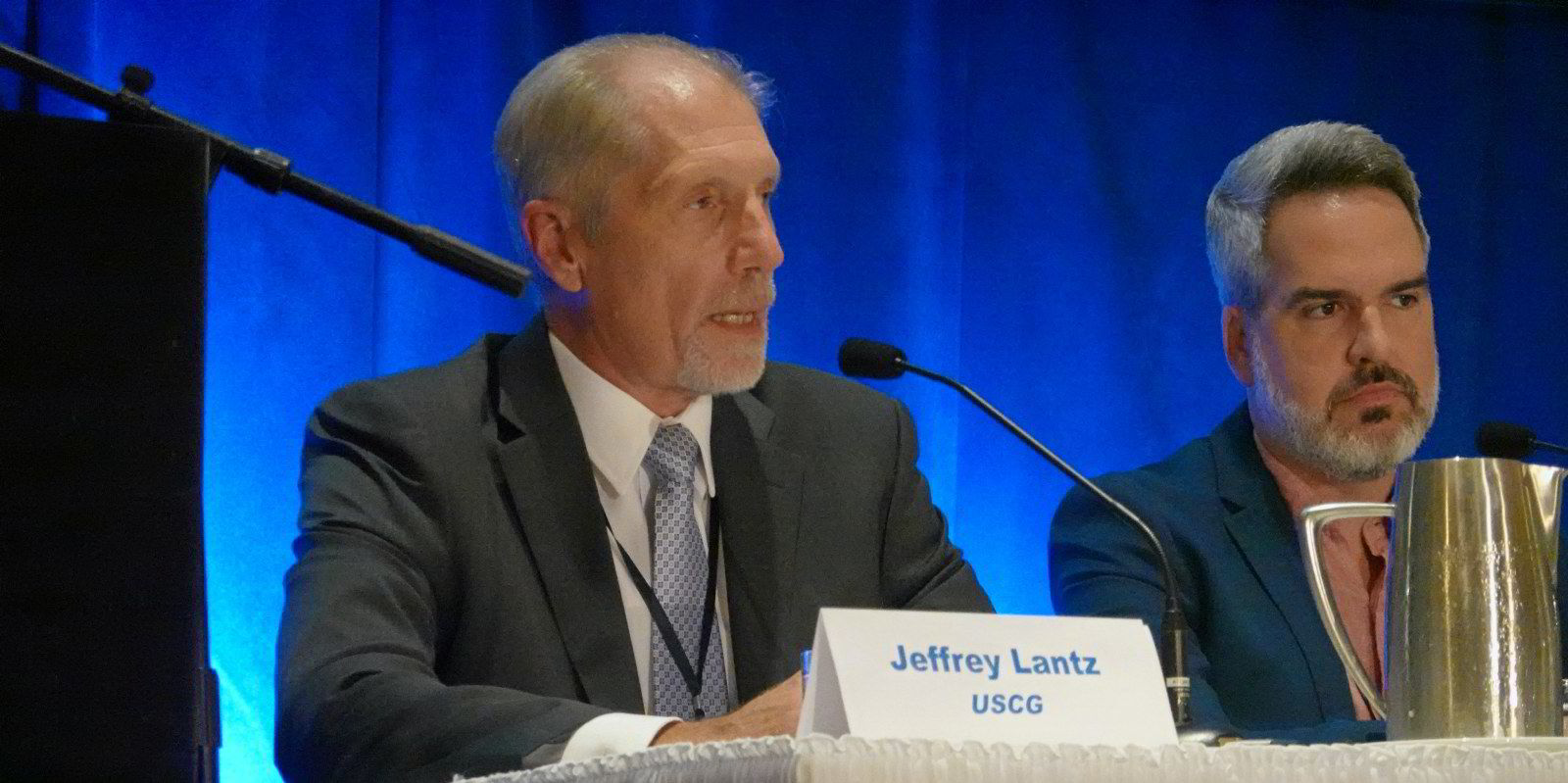DNV maritime chief executive Knut Orbeck-Nilssen sees shipping as relatively good at sharing data on safety.
But he identifies one exception: cyber-attacks.

He told the SHIPPINGInsight conference in Stamford, Connecticut that hacking incidents are typically kept hidden until long after the attack.
“That is one area where I can see that collaboration and sharing your data would really make a lot of sense,” said Orbeck-Nilssen, whose company is a leading classification society.
“By not sharing, we are making the hackers more powerful.”
Expecting shipping companies to learn from cyber incidents individually is not a good path forward, he said.
He said technology is available to share information about cyber-attacks in a controlled way, to ensure that companies do not have to divulge sensitive commercial data.
“On the safety of the security side, I think there is much to be gained,” he said.
Orbeck-Nilssen’s comments came during an optimisation-focused conference in which the industry’s traditional reticence to share data was frequently identified as hampering progress on digitalisation and decarbonisation.
Ivonne Auerbach, client director at technology firm Kongsberg Digital, said there has been a massive shift in the shipping mindset, with owners and operators embracing digitalisation.
But a lack of standardisation and an unwillingness to share data are barriers.
“There is currently an increasing focus on utilising onboard data for better performance but also smarter business decisions,” she said.
“However, we see also that the collected data needs to be analysed and put together in a manner that benefits the industry, not just the owner.”
But Nathalie Sykora, chief global operations officer at Canadian shipowner CSL Group, said there is a reason why the industry is hesitant to share data.
“It’s the constant fear of having our data being weaponised,” she said, pointing to the use of data by regulators and technology companies that sell data platforms.
“To a certain degree, I think it’s self-preservation. Until all of the industry players and stakeholders demonstrate that they can be responsible with this information and insight, and it won’t get weaponised, I think we’re always going to be hesitant to openly share and open our kimono.”




